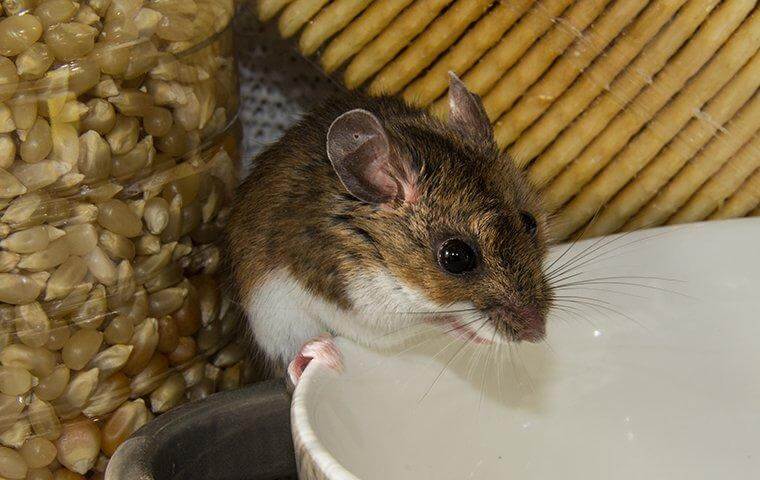 Rodents are so small that they may not seem like they could pose a threat. Some, like mice, can even appear cute. However, don’t let appearances deceive you. Rodents are one of the worst pest invaders to have in your home or business. In winter months when the outside weather is cool and resources become scarce, rodents often invade human dwellings in search of warmth and food, bringing danger and destruction with them.
Rodents are so small that they may not seem like they could pose a threat. Some, like mice, can even appear cute. However, don’t let appearances deceive you. Rodents are one of the worst pest invaders to have in your home or business. In winter months when the outside weather is cool and resources become scarce, rodents often invade human dwellings in search of warmth and food, bringing danger and destruction with them.
Disease
The primary health concern rodents pose comes from their potential to spread disease. Although they are most notorious for spreading the Black Death in the Middle Ages, rodents can transmit several dangerous viruses and bacteria to people through their feces, urine, saliva, and body oil.
Some of the many diseases rodents carry include:
- Hantavirus
- Salmonellosis
- Hemorrhagic fever with renal syndrome
- Leptospirosis
- Plague
- Lassa fever
- Rat-bite fever
- Omsk hemorrhagic fever
- Tularemia
- Various arenaviruses
Not only do rodents spread diseases directly, but they are also vector pests for other parasites. Rodents attract fleas, ticks, and mosquitoes that spread a host of other dangerous, unwanted diseases.
Allergies
Rodents leave behind many biological elements as they scurry about a home, including their hair, saliva, urine, and droppings. People that suffer allergic reactions to these elements can expect sneezing, runny nose, nasal congestion, itchiness around eyes and nose, red patches on the skin, and discoloration of the face.
Some people can even suffer asthma-like symptoms such as wheezing, chest pain, trouble sleeping, and difficulty breathing.
Food Contamination
Like any other household pest, rodents break into homes primarily in search of food. Unfortunately, their small size, adept climbing skills, and powerful teeth allow them to easily access food in your pantry or kitchen, especially those stored in plastic bags or other easily-torn containers. When they come into contact with food, their saliva and the bacteria carried on their bodies transfer directly to you.
Property Damage
Rodents don’t just pose a health risk to your family, they also put the health of your home in jeopardy. Rats and mice have teeth that never stop growing, causing them to constantly chew on whatever they can find to whittle them down. To get into a structure, rodents are known to chew through wooden beams, mortar, and other building materials, leaving holes behind that they can use to get in and out of your home.
If they find their way into your home, that means you will almost certainly start finding gnaw marks on your walls and floors along with whatever holes they may chew to get into your walls to get into your kitchen or pantry.
Fire Hazards
If their incessant gnawing into wooden surfaces wasn’t bad enough, they can start creating real problems when they start chewing into electronics. Rodents love to chew on electrical wires, which can cause them to short-circuit, spark, and start a fire.
Attracting Other Pests
Rodents will chew holes in the sides of your home to get in and out, but that doesn’t mean they’re the only ones that use these entry points. If a family of rodents gets into your home in winter, don’t be surprised if other pests like spiders and cockroaches use those same holes to get inside come spring.
Likewise, if the rodents that got into your home happened to have parasites on them, they’re now in your house as well. If those rats in your attic had fleas then their flea problem is now your flea problem.
Rodent Problems Require Professional Solutions
If you’ve started seeing the telltale signs of rodents around your home, don’t leave your property at risk: contact the rodent removal experts at Pestmaster® Services today and find out how one of our comprehensive rodent control treatment plans can help you take back your home.
.png)
